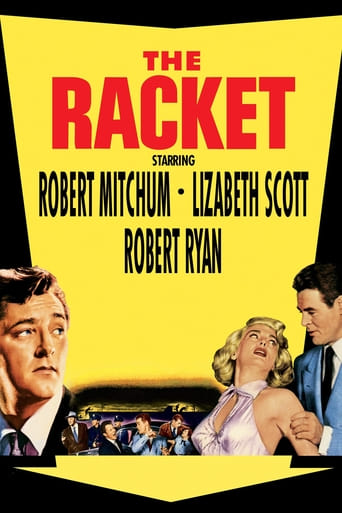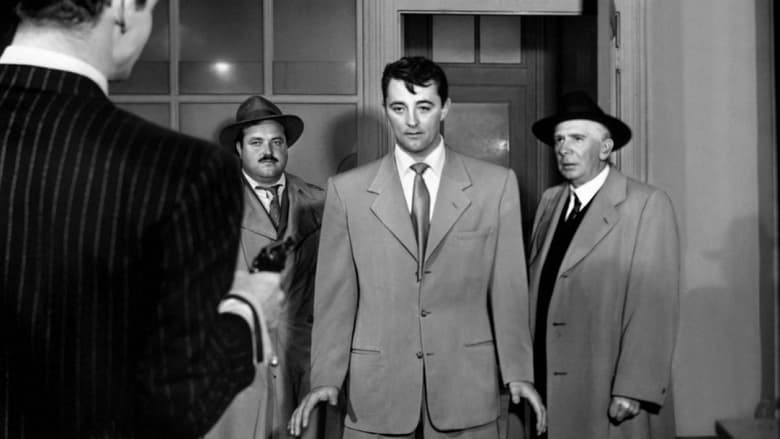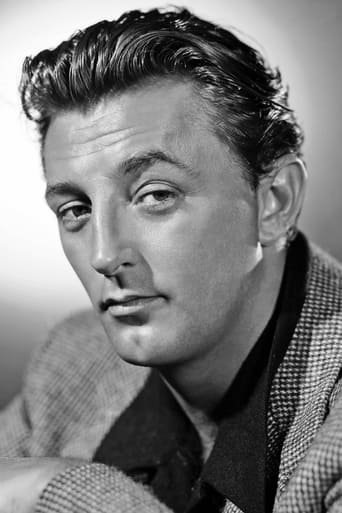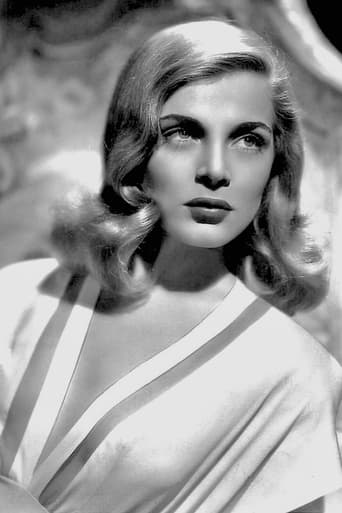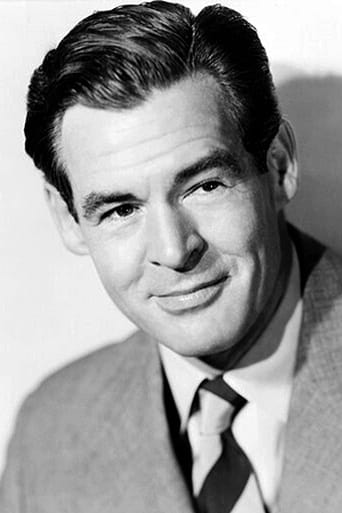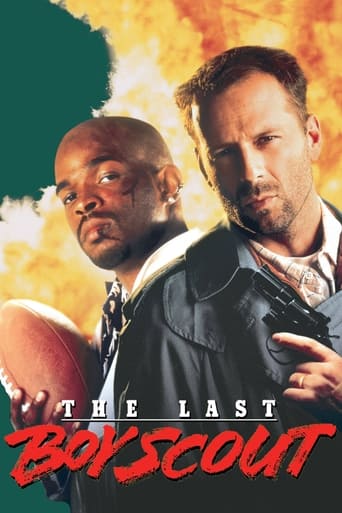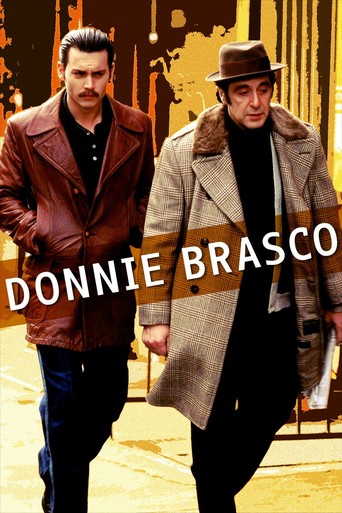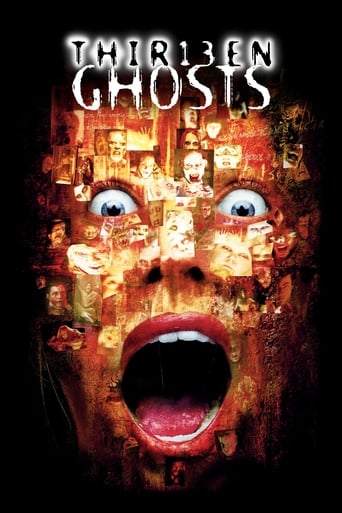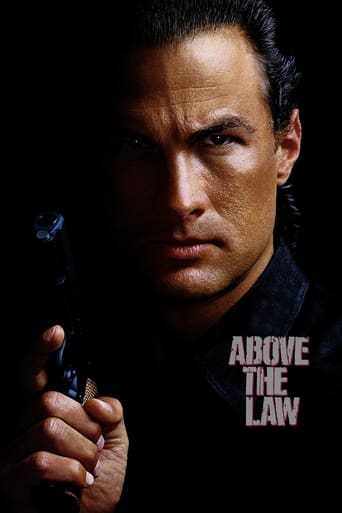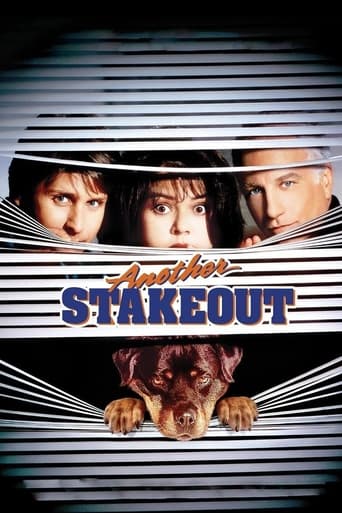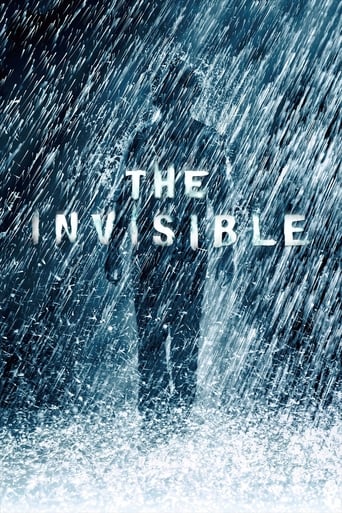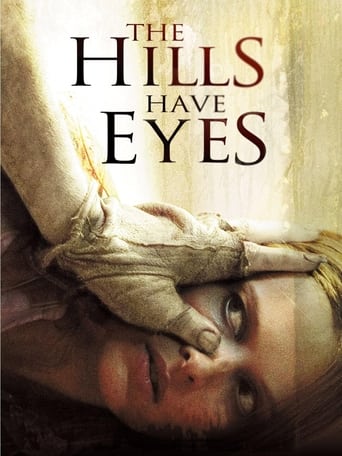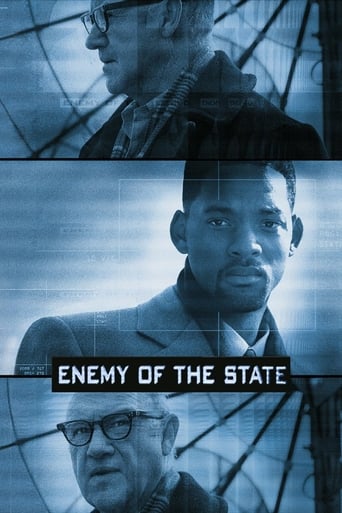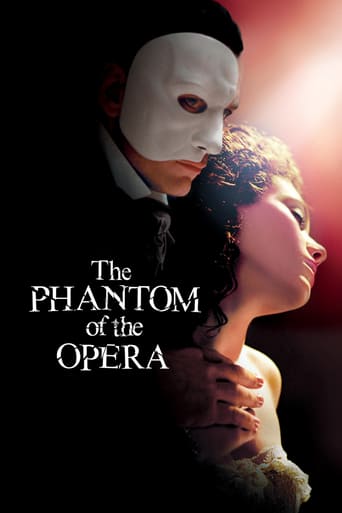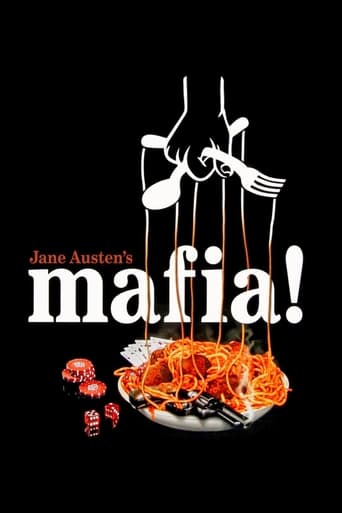The Racket (1951)
The big national crime syndicate has moved into town, partnering up with local crime boss Nick Scanlon. McQuigg, the only honest police captain on the force, and his loyal patrolman, Johnson, take on the violent Nick.
Watch Trailer
Cast


Similar titles
Reviews
One of my all time favorites.
I enjoyed watching this film and would recommend other to give it a try , (as I am) but this movie, although enjoyable to watch due to the better than average acting fails to add anything new to its storyline that is all too familiar to these types of movies.
This film is so real. It treats its characters with so much care and sensitivity.
Through painfully honest and emotional moments, the movie becomes irresistibly relatable
The 80-minutes has the cast elements of a memorable crime drama—Ryan, Mitchum, Talman, Conrad. Then too, RKO's head honcho Howard Hughes actively participated, along with a narrative of city corruption that's handled in some revealing detail. So why aren't the results more memorable than I think they are. To me, the screenplay is more congested than it should be. For example, Liz Scott's role is clearly there for marquee value, adding nothing to the plot, other than crowding up the many characters and sub-plots. Considering the number of writes, rewrites, and re-shoots (IMDB), perhaps the crowding is understandable. All in all, the number of production fingerprints fail to blend into an impactful whole, leaving a movie of a few memorable parts.Ryan, of course, is Ryan, scary in his intensity, and wholly convincing in his criminal belligerence. Mitchum, however, is cast against type as the unwavering precinct captain. In fact, Captain McQuigg runs his precinct much like Scanlon's (Ryan) territorial tyrant. Thus McQuigg is more like a competing territorial chief than a neutral enforcer of the law, (note how McQuigg unlawfully tears up a legal writ.). The film's worth watching for its outlining of how corruption works in a city environment. District Attorney Welch (Collins) and Sgt. Turk (Conrad) betray their public trust by allying with the crime syndicate, becoming instrumental as go-betweens and influence-peddlers. This was a period in the country's history (1951) when organized crime was getting headlines thanks to Sen. Kefauver's investigation committee. So Hollywood's response is not surprising. I just wish the movie had lived up to its potential, but I guess there's a lesson here about too many cooks.
When it comes to dead-seriousness, I thought this 1951 Crime/Thriller's take on that was absolutely priceless. In fact, I got such an enjoyable kick out of The Racket's poker-faced story-line that I sat through it twice.Containing a nice mix of snappy, mean-mouthed dialogue, aggressive shoving around, and unexpected day-time shootings, The Racket certainly seemed to have all the right elements required to carry it through (without much disappointment) to its inevitable "crime-doesn't-pay" ending.When it came to the likes of the 2 Roberts (that's Mitchum as the no-nonsense cop, Capt. Tom McQuigg, and Ryan as the nasty villain, Nick Scanlon), I thought that these 2 bad-boys of crime-cinema filled their respective roles as comfortably as a pair of well-fitting gloves.My one beef about this picture comes down to The Racket's token femme fatale and lounge singer, Irene Hayes. Played by the tone-deaf Lizabeth Scott, man, when this cheap canary performed her big number at the Paradise Club, I absolutely cringed at her utter lack of talent.Even though Irene did, indeed, get slapped around and royally insulted, once or twice, it didn't come anywhere near close enough to what I thought she actually deserved.
A sluggish, middling film noir rescued by the sturdy presences of its two lead stars, "The Racket" (1951) should prove of interest for all fans of this most American of cinematic genres. Producer Howard Hughes, who had just acquired a controlling interest in RKO three years earlier, had also been the producer of the 1928 silent film called "The Racket" (based on the stage play by Bartlett Cormack, which had featured Edward G. Robinson in the role of "the heavy"), and apparently thought this old property a perfect one for updating, as Tennessee Senator Estes Kefauver and his investigating crime commission were then making headlines. Hughes brought together RKO's top two leading men, Roberts Mitchum and Ryan, hired John Cromwell to direct (Cromwell's "Caged," released a year earlier, had turned out to be a noir masterpiece), and engaged Sam Fuller to write a script (Hughes ultimately rejected the script and got William Haines to do a complete rewrite). As it turns out, though, despite all this great talent involved, and the assistance of a wonderful cast of supporting actors, the resulting film is a bland affair; somewhat slow moving, deficient in suspense and action, and even scarce in the juicy dialogue department. Still, as I said, the picture is certainly not without interest.In the film, Mitchum plays Capt. Tom McQuigg, seemingly one of the few honest cops in the purposely unnamed midsize city where the picture transpires (it is Anywhere, America). As head of his precinct, McQuigg's main concern is his childhood acquaintance Nick Scanlon (Ryan), a criminal boss whose old-school, violent methods have begun to rankle the more businesslike Syndicate that has been making inroads everywhere and bribing such figures as the Assistant D.A. Welch (played by the great character actor Ray Collins) and the police commissioner himself (William Conrad, perhaps best known today as TV's Cannon). With the Syndicate backing Welch in an upcoming election, matters between McQuigg and Scanlon come to a head, and are escalated when honest Officer Robert Johnson (not the bluesman, but rather played by William Talman, who many will recall as Perry Mason's adversary Hamilton Burger; an odd casting choice, for this viewer, since I recall Talman best as psycho fugitive Emmett Myers in Ida Lupino's great film noir of 1953, "The Hitch-Hiker") sets himself up as a decoy, and when nightclub chantootsie Irene Hayes (Lizabeth Scott, born Emma Matzo, who had previously been directed by Cromwell in the Humphrey Bogart 1947 noir "Dead Reckoning"), formerly engaged to Scanlon's kid brother, decides to testify against him...and thus, like Johnson, setting herself up for elimination by the Mob....The two Roberts, who had previously appeared together in the infinitely superior noir "Crossfire" in 1947 and would costar, many years later, in "The Longest Day" (1962) and "Anzio" (1968), DO work very well together here, although Ryan easily dominates the proceedings, his seething, violent Scanlon ("I was running this town when you cheap jerks were still eating at diners!") ever so much more memorable than Mitchum's overly laid-back McQuigg. Scott, despite her rather underwritten character, yet manages to make an impression, and gets to lip-synch the song "A Lovely Way to Spend an Evening" in a rather dingy-looking nightclub setting. Besides the great character actors already named, "The Racket" features Robert Hutton (future director of the 1962 schlock favorite "The Slime People") as a young reporter, Les Tremayne (who would appear IN "The Slime People"!) as the crime commission head, and Herb Vigran (as that nightclub owner) and Tito Vuolo (as Nick's barber), whose faces should certainly be familiar to baby-boomer fans of the old "Adventures of Superman" TV show. The film, despite its dearth of action, yet manages to offer at least four scenes that are comparatively gripping: a Mob-orchestrated explosion in McQuigg's house, a foreshadowing of a somewhat similar sequence in the awesome noir "The Big Heat" (1953); a nighttime dukeout that McQuigg engages in atop a roof with a Mob thug, with no musical accompaniment; a high-speed car chase between Nick and the cops; and the arrival of a pair of hit men at Johnson's suburban home."The Racket" is currently available on a fine-looking Warner Bros. DVD and features one of the best commentary tracks that I've heard in ages. This commentary, by the founder of the Film Noir Foundation, Eddie Muller, shows off Muller's encyclopedic knowledge in a highly conversational, understated manner. Among the dozens and dozens of fascinating tidbits that Muller shares with us is the fact that, despite his 1948 arrest for marijuana possession, Mitchum continued to enjoy the support and loyalty of Howard Hughes (who effectively salvaged his career). He also tells us that the Irene Hayes character was called "Helen Hayes" in the 1928 screen version, a name that had to be changed for obvious reasons; that Nicholas Ray directed numerous scenes after the shooting wrapped (the opening sequence in the governor's office, Mitchum's entrance, the rooftop fight, the nightclub scene, etc.); and that the two main differences between the two versions are the beefing up of the Johnson character and the introduction of the Syndicate angle. He also mentions that he prefers the silent version to the one under discussion here, which makes one wish that this original were available on DVD. The fact that it is not might warrant the investigation of a "crime" commission itself....
The Racket is a remake of the 1928 film of the same name, itself based on a popular Bartlett Cormack play. With Howard Hughes backing the production it was beset with a number of problems, interference and a few director changes were prominent and the script was tampered with to try and capture the zeitgeist of the Kefauver Committee Hearings that were running prominently at the time. Plot in basic form pitches Robert Mitchum's honest police captain against Robert Ryan's no good crime boss, and the location is some corrupt American city (almost certainly Chicago).At the time of its making, the film had a cast list that cried out as a roll for film noir/crime movie big hitters: Robert Mitchum (Out of the Past), Robert Ryan (Crossfire), Lizabeth Scott (Pitfall) and William Talman (Armoured Car Robbery), while in support there was the likes of William Conrad (The Killers), Ray Collins (Leave Her to Heaven) and Virginia Huston (also Out of the Past). Even looking at the directors who contributed on the production sees some fine genre credentials: John Cromwell (Dead Reckoning), Nicholas Ray (In a lonely Place), Mel Ferrer (The Secret Fury) and Tay Garnett (The Postman Always Rings Twice). But too many cooks can often spoil the broth, such is the case here.Solid enough story that's unspectacular in its execution, a choppy yet just about watchable experience, and certainly a softer crime movie than it really ought to have been. It has often been coined as being a hard-hitting melodrama, but the decent thriller sequences are cloaked by a narrative that actually doesn't flow with any conviction. There's also the odd casting of Mitchum as a good guy to get around, and the film doesn't achieve that, namely because Mitchum plays it distinctly unenthusiastically. Ryan, too, looks to be going thru the motions, while Scott is woefully underused. Thankfully there's good work from Talman, Collins and Conrad to enjoy, while Huston impacts with what little she is given to work with.On a surface viewing it's easy to believe that The Racket is a better film than it is. We enjoy seeing Ryan doing snarly villainy and throwing punches, and Mitchum, in spite of walking thru the picture, is always a watchable presence. Pulses are raised too with some gun play, auto pursuits and a roof top punch up. But strip those away and you find the odd scene slotted in that doesn't make a great deal of sense, they exist but serve no purpose since the writing doesn't recall them later. There's also the whiff of stupidity about the way the makers were clearly trying to craft an intelligent take on organised crime, yet the police really don't have to do much to nail these bad boys. It's all very well portraying Mitchum and Talman as bastions of good and pure, but at least let them have to do work to bring down the crims! While the ending is wholly unsatisfactory.The names involved ensure the film is never boring, but confused messages and a jumbled narrative make it a film of big intentions but not much substance. As for film noir? Well it does contain film noir type characters, but really this is about as film noir as my day- glow socks. 5/10

